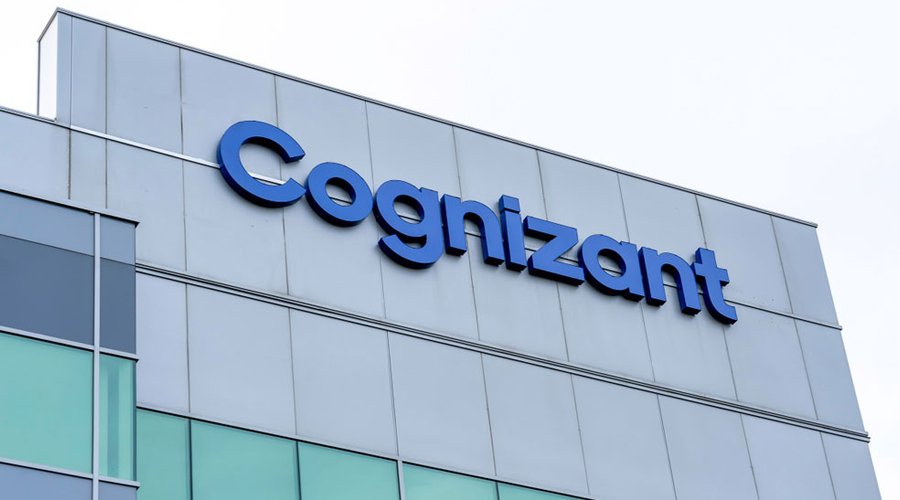Jobs & Careers
Cognizant’s Q2 Revenue Reaches $5.2 Bn with Two Billion-Dollar Deals

Cognizant reported strong financial results for the second quarter of 2025, with revenue reaching $5.25 billion, marking a 7.2% year-over-year increase in constant currency.
In a statement, CEO Ravi Kumar S remarked that the performance exceeded the high end of the company’s guidance range.
“Our investments in talent, platforms and AI infrastructure drove our fourth-straight quarter of organic year-over-year revenue growth, another quarter of margin expansion and helped us accelerate bookings, including two $1 billion deals,” Kumar said.
The company saw record bookings over the last twelve months, totaling $27.8 billion, a 6% increase, with Q2 bookings surging 18% year-over-year, driven by two mega deals each valued over $1 billion.
Client engagements highlighted several major contracts, such as agreements with Lineage Inc. to deliver agentic AI solutions, with Aker Solutions to modernise IT and AI operations, and with Ipswich City Council for a five-year technology transformation in partnership with Workday.
Cognizant’s forward guidance for 2025 anticipates continued growth, with full-year revenue expected between $20.7 and $21.1 billion, and adjusted operating margin projected at 15.5% to 15.7%.
Kumar added that in today’s dynamic and competitive environment, we are differentiating ourselves by moving with agility and building IP at the edge, leveraging our interdisciplinary capabilities across domain, technology and operations to address new client growth priorities and deliver agentification at scale.
Cognizant is heavily investing in vibe coding over the last month. It aims to generate 50% of its code using AI within a year and states it has already achieved 20% of that target.
Read: Cognizant’s Vibe Coding Lesson for Indian IT
The company’s headcount stood at 343,800 as of June 30, 2025, reflecting an increase of 7,500 over both the previous quarter and the same period last year.
Acquisitions played a significant role, contributing about 400 basis points to revenue growth for both Q2 and the first half of 2025.
On the technology front, the company reiterated that it has launched the Cognizant Agent Foundry, a platform-agnostic solution helping enterprises design, deploy, and manage autonomous AI agents across all stages of development.
This was complemented by the open-sourcing of its Neuro AI Multi-Agent Accelerator for research and academic use, while commercial clients gained access to a robust Multi-Agent Services Suite.
Partnerships have been strengthened, notably with Google Cloud in launching Cognizant Autonomous Customer Engagement, an AI-led contact center solution, and with Pegasystems to integrate agentic AI services and accelerate cloud transformations.
The collaboration with Salesforce was also expanded, introducing offerings built for Salesforce’s Agentforce, intended to blend human expertise with autonomous agents for greater productivity and impact in customer and operations functions.
Jobs & Careers
Top Life Sciences Companies Set Up GCCs in India in Last 5 Years, says EY India

India has rapidly become a key hub for life sciences global capability centres (GCCs), with nearly half of the world’s top 50 life sciences companies establishing a presence in the country—most within the past five years, according to a new EY India report.
The report, Reimagining Life Sciences GCCs, highlighted how India’s GCCs have evolved from back-office support centres into strategic engines driving drug discovery, regulatory affairs, and commercial operations.
“This isn’t about cost arbitrage anymore, it’s about India becoming indispensable to the global R&D pipeline,” said Arindam Sen, partner and GCC Sector Lead – technology, media & entertainment and telecommunications, EY India. “Life sciences multinationals are embedding their most strategic, knowledge-intensive work here, making India the epicentre for life sciences innovation, compliance, and future growth.”
According to EY, Indian life sciences GCCs now manage integrated functions across clinical trials, pharmacovigilance, supply chain analytics, biostatistics, and enabling services such as finance, HR, IT, and data analytics.
The study shows that GCCs handle 70% of finance, 75% of HR, 62% of supply chain, and 67% of IT functions for their global firms. Core functions have also grown sharply: 45% in drug discovery, 60% in regulatory affairs, 54% in medical affairs, and 50% in commercial operations.
India’s rise as a GCC hub is driven by four key factors: policy support from central and state governments, a strong talent pool of over 2.7 million life sciences professionals, access to a mature ecosystem including CROs, universities, and startups, and widespread infrastructure with scalable Grade-A office spaces.Looking ahead, the report noted that leading life sciences GCCs are positioning themselves as “twins” of their global headquarters, co-owning innovation and accelerating outcomes. Sen added, “Their evolution will be defined by future capabilities, operating model transformation, and building agile, multi-disciplinary teams skilled in areas like generative AI, bioinformatics, and digital health.”
Jobs & Careers
AI PC Shipments to Hit 77 Million Units This Year: Report

AI PCs will make up 31% of the worldwide PC market by the end of 2025, according to Gartner. Shipments are projected to hit 77.8 million units this year, with adoption accelerating to 55% of the global market in 2026 and becoming the standard by 2029.
“AI PCs are reshaping the market, but their adoption in 2025 is slowing because of tariffs and pauses in PC buying caused by market uncertainty,” said Ranjit Atwal, senior director analyst at Gartner, in a statement. Despite this, users are expected to continue investing in AI PCs to prepare for greater edge AI integration.
AI laptop adoption is projected to outpace desktops, with 36% of laptops expected to be AI-enabled by 2025, compared to 16% of desktops. By 2026, nearly 59% of laptops will fall into this category. Businesses largely favour x86 on Windows, which is expected to represent 71% of the AI business laptop market next year, while Arm-based laptops are anticipated to see more substantial consumer traction.
To support this shift, Gartner predicts that 40% of software vendors will prioritise developing AI features for PCs by 2026, up from just 2% in 2024. Small language models (SLMs) running locally on devices are expected to drive faster, more secure, and energy-efficient AI experiences.
Looking ahead, Gartner notes that vendors must focus on software-defined, customisable AI PCs to build stronger brand loyalty. “The future of AI PCs is in customisation,” Atwal said.
Still, the rapid rise of AI PCs masks an industry-wide “TOPS race.” While Microsoft, AMD, Intel, and Qualcomm position AI PCs as the future, performance claims around neural processing units (NPUs) remain contested.
As industry leaders push for more TOPS, analysts warn that real-world AI performance may hinge less on specifications and more on practical workloads, software maturity, and user adoption.
The post AI PC Shipments to Hit 77 Million Units This Year: Report appeared first on Analytics India Magazine.
Jobs & Careers
Hexaware, Replit Partner to Bring Secure Vibe Coding to Enterprises

Hexaware Technologies has partnered with Replit to accelerate enterprise software development and make it more accessible through secure Vibe Coding. The collaboration combines Hexaware’s digital innovation expertise with Replit’s natural language-powered development platform, allowing both business users and engineers to create secure production-ready applications.
The partnership aims to help companies accelerate digital transformation by enabling teams beyond IT, such as product, design, sales and operations, to develop internal tools and prototypes without relying on traditional coding skills.
Amjad Masad, CEO of Replit, said, “Our mission is to empower entrepreneurial individuals to transform ideas into software—regardless of their coding experience or whether they’re launching a startup or innovating within an enterprise.”
Hexaware said the tie-up will facilitate faster innovation while maintaining security and governance.
Sanjay Salunkhe, president and global head of digital and software services at Hexaware Technologies, noted, “By combining our vibe coding framework with Replit’s natural language interface, we’re giving enterprises the tools to accelerate development cycles while upholding the rigorous standards their stakeholders demand.”
The partnership will enable enterprises to democratise software development by allowing employees across departments to build and deploy secure applications using natural language.
It will provide secure environments with features such as SSO, SOC 2 compliance and role-based access controls, further strengthened by Hexaware’s governance frameworks to meet enterprise IT standards.
Teams will benefit from faster prototyping, with product and design groups able to test and iterate ideas quickly, reducing time-to-market. Sales, marketing and operations functions can also develop custom internal tools tailored to their workflows, avoiding reliance on generic SaaS platforms or long IT queues.
In addition, Replit’s agentic software architecture, combined with Hexaware’s AI expertise, will drive automation of complex backend tasks, enabling users to focus on higher-level logic and business outcomes.
The post Hexaware, Replit Partner to Bring Secure Vibe Coding to Enterprises appeared first on Analytics India Magazine.
-

 Business3 days ago
Business3 days agoThe Guardian view on Trump and the Fed: independence is no substitute for accountability | Editorial
-
Tools & Platforms3 weeks ago
Building Trust in Military AI Starts with Opening the Black Box – War on the Rocks
-

 Ethics & Policy1 month ago
Ethics & Policy1 month agoSDAIA Supports Saudi Arabia’s Leadership in Shaping Global AI Ethics, Policy, and Research – وكالة الأنباء السعودية
-

 Events & Conferences3 months ago
Events & Conferences3 months agoJourney to 1000 models: Scaling Instagram’s recommendation system
-

 Jobs & Careers2 months ago
Jobs & Careers2 months agoMumbai-based Perplexity Alternative Has 60k+ Users Without Funding
-

 Funding & Business2 months ago
Funding & Business2 months agoKayak and Expedia race to build AI travel agents that turn social posts into itineraries
-

 Education2 months ago
Education2 months agoVEX Robotics launches AI-powered classroom robotics system
-

 Podcasts & Talks2 months ago
Podcasts & Talks2 months agoHappy 4th of July! 🎆 Made with Veo 3 in Gemini
-

 Podcasts & Talks2 months ago
Podcasts & Talks2 months agoOpenAI 🤝 @teamganassi
-

 Mergers & Acquisitions2 months ago
Mergers & Acquisitions2 months agoDonald Trump suggests US government review subsidies to Elon Musk’s companies

